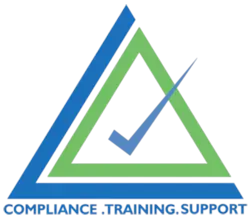In April 2023 the DVSA issued Special Notice 02-23 – Changes to Annual Training. This Notice explained that the minimum amount of training required has now been reduced from 3 hours of MOT tester training each year and 16 hours in a rolling 5 year period, to a straight 3 hours of MOT tester training each year.
This is a much simpler system and as long as you complete the MOT annual training followed by the assessment you will have complied with that part of the regulation. To fully comply with DVSA requirements you will also have to keep a log of what training you have done.
Knowing what to include in a training log can be tricky and for that reason many tend to avoid the issue altogether. However, although there is no set format, there are several ‘must haves’ that should be included in a training log.
They are:
- your name and user ID
- which vehicle groups your training covered, such as class 1 & 2 or 4 & 7
- the date of the training
- how long the training session lasted
- what topics you covered during the session
- notes on what you did, how you did it and what you learned.
How can I be sure testers are completing their training records/logs?
MOT Site Managers can see their MOT Testers’ training logs on the MOT system. Encourage them to find any missing training logs and past certificates (five years’ worth of training logs and Annual Training Certificates is required).
Ultimately, it is the tester’s responsibility to provide five years of both logs and certificates and keep the records, but AEs must ensure their testers’ training is up to date and cannot assume it’s being done. So, if they consistently ‘forget’ it may be necessary to escort them to a PC (no, not Police Constable!) and stand next to them while they do it.
Remember that if DVSA come into your premises for a site visit you, as the MOT Manager, need to produce 5 years’ worth of training records – if all your testers keep their training logs in their tool boxes you may not be able to produce them if they are out of the business on that day. All training logs from 24/25 forward will be digital but there should still be paper copies for previous years until there are 5 years on the system.
Why is it essential for MOT testers to keep training logs?
It’s a crucial step in ensuring that your MOT testing station complies with the latest regulations and standards. By keeping up-to-date training logs, you can demonstrate to the DVSA that your testers are fully qualified and compliant with legislation.
Also, as a site manager, this gives you peace of mind knowing that your business operates within legal requirements. It also helps build trust with customers who want assurance that qualified professionals will test their vehicle.
Make sure you keep your testers’ training certificates and logs up-to-date so you can avoid any sanctions in the future. Don’t think “Well, I’ve asked them, so it’s up to them now!” Check you have all the necessary documentation in place as evidence, as it’s a requirement as per Appendix 8.4 of the MOT Guide.
For more information, you can download a free Training Log template on the DVSA site.
